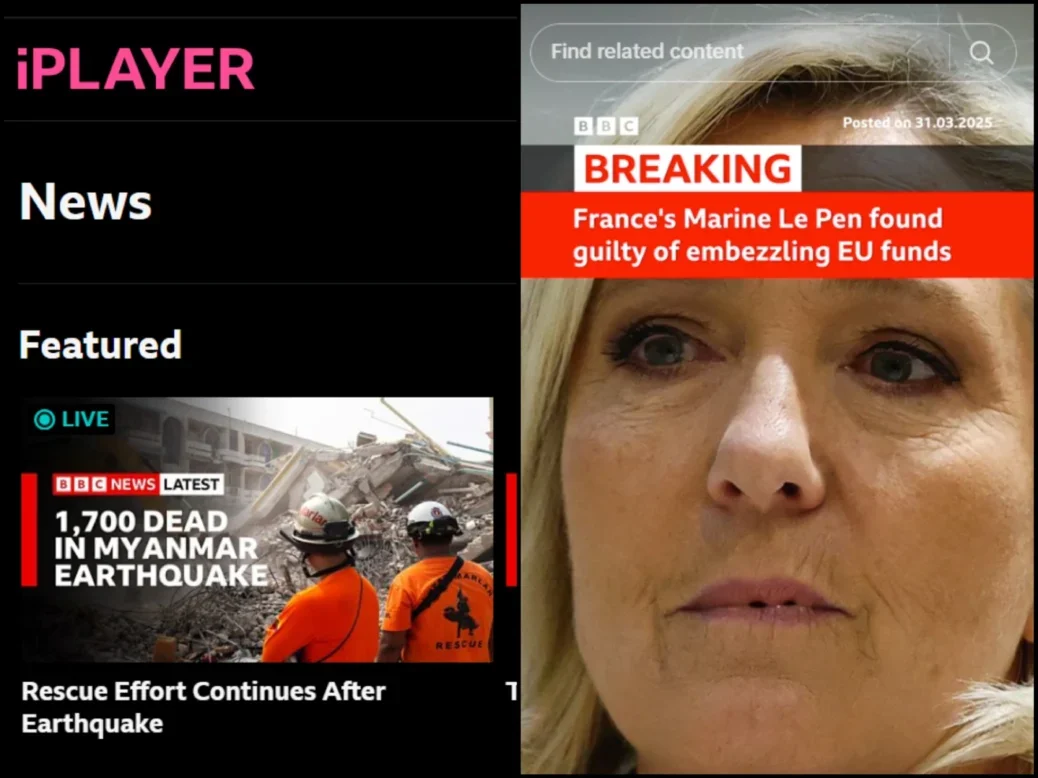
The BBC has said it will open new talks with AI providers, invest in short-form video, expand BBC Verify and revamp its news coverage on iPlayer in 2025/26.
Unlike other leading UK-based newsbrands like News UK’s The Times and The Sun, the Financial Times, The Guardian and Future, the BBC has not signed licensing or tech partnerships with any AI companies to date.
The BBC carried out research this year finding that nine out of ten AI chatbot responses about news queries featured at least “some issues” and half contained “significant issues”.
The broadcaster said in its annual plan published on Monday it is “acutely aware of the growing threat to trusted information that is emerging from generative AI technology. Distortion is what happens when an AI assistant ‘scrapes’ information to respond to a question and serves up an answer that is factually incorrect, misleading and potentially dangerous.
“That is why the BBC will open up a new conversation with the leading AI technology providers and other news brands so we can work together in partnership to find solutions.”
The BBC will however “continue to embrace AI with pilot programmes that will help us deliver trusted journalism to a wider audience in more relevant formats”. So far its AI pilots have included providing “much faster” translations of reporting across language services, with human checks, the addition of subtitles to some programmes on BBC Sounds including The Today podcast, and transcripts of live football commentaries aired on local radio.
The corporation said it plans to “help lead the debate on how the responsible use of AI can support human creativity and growth in the creative industries, while protecting the intellectual property of creators”.
BBC short-form news video, Verify and iPlayer expansion
The BBC also teased investment of its short-form and video output this year, expanding its presence on Youtube, Tiktok and Instagram. Currently BBC News has 28.6 million followers on Instagram where it was the first newsbrand to cross the 20 million mark in December 2021, 17.6 million on Youtube, and 7.4 million on Tiktok where it arrived relatively late in March 2022.
The BBC said this work would help it “reach young audiences with our most important stories” but also mean it better serves audiences from lower income sociodemographic groups.
The BBC said it will expand BBC Verify, which launched in 2023 with a team of more than 60 journalists and the aim of building audience trust by showing how its journalists know what they are reporting is true.
The plan is to “make it an ‘always an’ offer, with daily digital output and a dedicated commitment to US coverage” amid a busy news cycle for Donald Trump’s second term. Currently BBC Verify largely publishes more responsive fact-checks in an ad-hoc fashion.
The BBC added that it will also “launch a new initiative in schools to help young people better gauge the legitimacy of news stories for themselves”.
The corporation promised to “double down on the high-impact, investigative journalism that makes our offering distinctive”.
This will mean launching a BBC Investigates strand online and its investigations and current affairs teams working more closely together to cover the major stories including Trump and the changing geopolitics of Europe.
On iPlayer, the BBC said it would put focus on improving its news offering. “As news consumption increasingly moves online, we are strengthening our commitment
to a compelling iPlayer-led news offer, with breaking news and outstanding in-depth documentaries at its heart.”
In 2024 the BBC launched a News section on the iPlayer homepage, “improving prominence and curation of BBC News content”. At the time of writing it is below categories named “Everyday Heroes: On the Frontline” and “Award-winning Comedy” and this is how it appears, with a livestream on the deadly Myanmar earthquake, a seven-minute story about Trump and Russian president Vladimir Putin, and a 25-minute documentary on the recent Washington DC plane crash:

Other changes in the past year included putting Panorama up on iPlayer on the morning of its evening broadcast.
The BBC said weekly active accounts viewing news on iPlayer in 2024 was up 8% compared to the year before, citing Piano Analytics data.
“Capitalising on this momentum, we are bringing together our UK Channel and Live Story Stream teams to generate richer story streams,” it said.
BBC ditches plan for adverts on some podcasts in UK
As first revealed by the Financial Times last week, the BBC confirmed in the annual plan that it has ruled out selling adverts on some of its podcasts in the UK on third-party platforms like Apple and Spotify.
Under the proposal, which emerged last year, podcasts would have remain ad-free on its own platform BBC Sounds and news and current affairs would not have been affected. But rivals and critics described the potential “market distortion” they believed would have resulted by using “licence-fee payers’ money to generate content that is then supported by advertising”. Former BBC director of news and current affairs James Harding said the plan would “drain advertising away from journalism”.
The BBC said today: “Having explored the options for commercialisation in the UK, we have ruled out placing adverts around BBC licence fee-funded programmes listened to on third-party podcast platforms. We continue to work with Audio UK and our partners to support the audio production sector and wider market.”
Email pged@pressgazette.co.uk to point out mistakes, provide story tips or send in a letter for publication on our "Letters Page" blog

